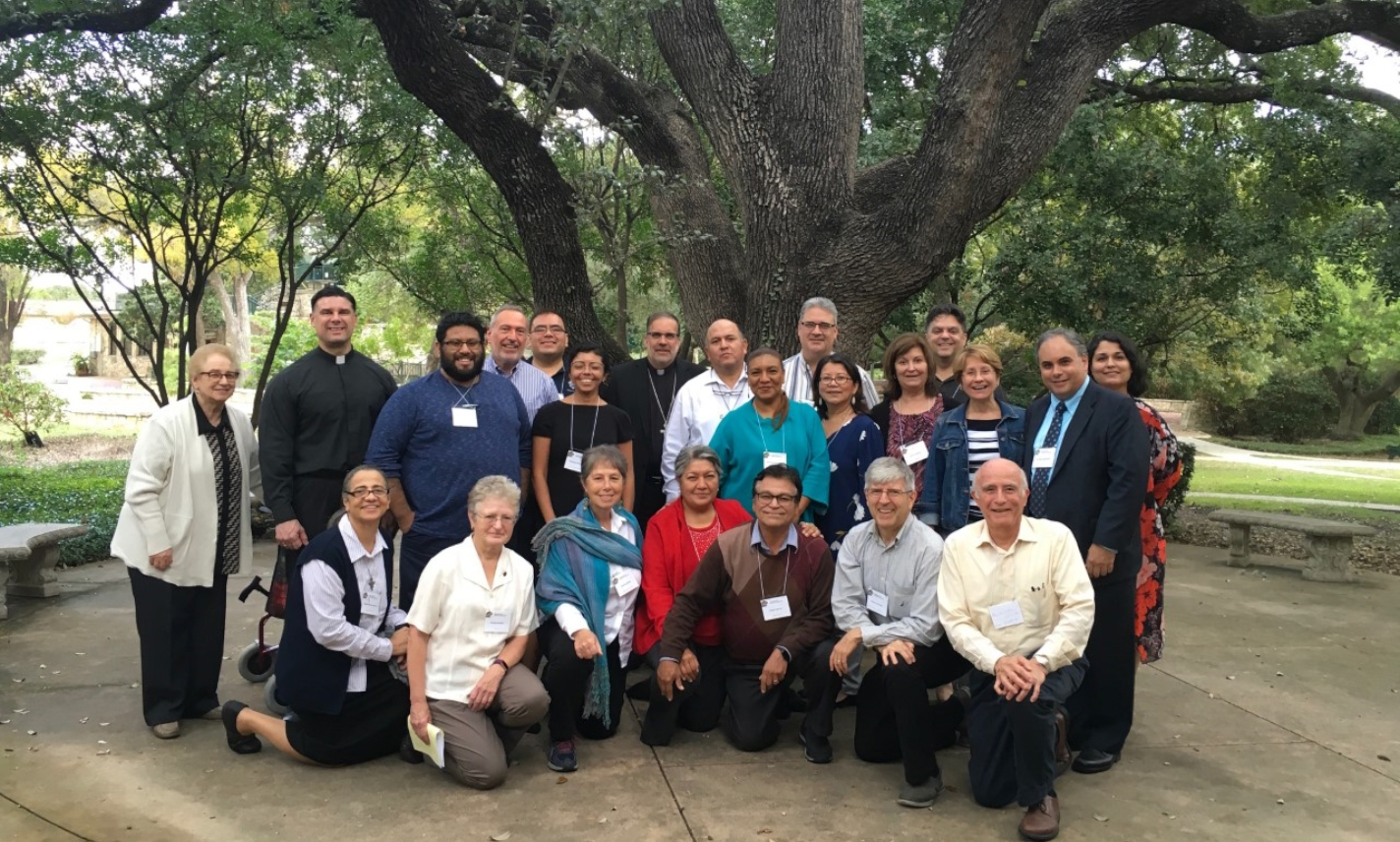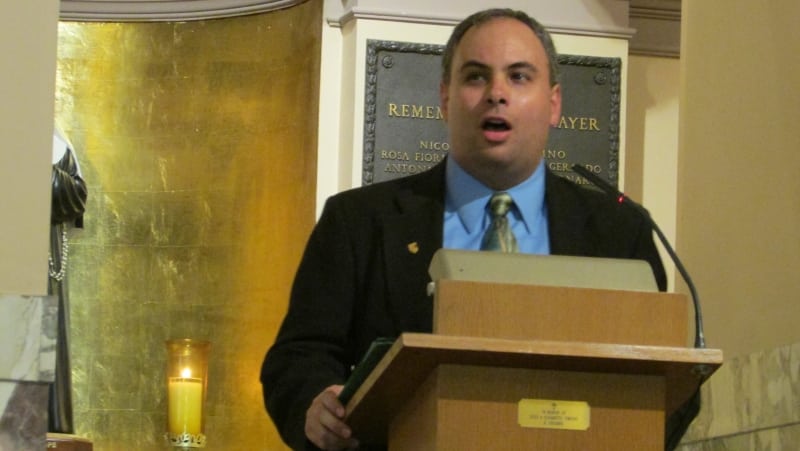Saturday of the 20th Week in Ordinary Time – Year 2 | Memorial of St. Bernard – August 20, 2022
Avoiding the sin of hypocrisy is at the heart of today’s Gospel reading from Matthew.
While Jesus says the scribes and Pharisees – two leading groups of religious authorities in Judaism at the time of Jesus – deserve respect because of their position – he proceeds to indicate how the actions of many of them do not live up to their words. They don’t practice what they preach!
Some clearly wanted honor for themselves and interpreted the laws of Judaism in such a strict way that others came to believe they were failures before God because they couldn’t live up these leaders’ interpretation of God’s law. We see again and again in the Gospels that Jesus is often most upset with those who don’t show mercy and compassion and those religious leaders who – while thinking they are doing God’s will – actually make it harder for people to experience the love and mercy of God.
I’m sure as you hear the words of today’s Gospel and are listening to my reflections, an image of someone you know who has acted like the scribes and Pharisees may have come up in your mind. Or perhaps you are reminded of a time when your own words and actions didn’t match up; perhaps a time you failed to show care and mercy for others. Hearing Jesus’ words today can be a reminder to us to pray when we see that moral or religious hypocrisy has become a stumbling block – either for ourselves, or for others. And we are invited to consider how we can overcome such hypocrisy.
The first reading from the prophet Ezekiel can offer some insight.
Ezekiel is a prophet speaking to Israel during a very traumatic time in its history – during the Babylonian exile, when thousands of his fellow Jews were deported from the Holy Land to Babylon – present day Iran and Iraq. The temple in Jerusalem was also destroyed during this time. Ezekiel, like his fellow exiles, wonders if God has abandoned him and his people because of their sins. However, in the visions Ezekiel has, he is reminded that God remains faithful, even if the people do not. Ezekiel has a vision of a restored temple in Jerusalem and sees the glory of God – God’s holy presence, or, in Hebrew, God’s shekinah – fills the temple once again. It is a promise that exile is not the last word for God’s people. Ezekiel, for his part, is surprised that God can be present once again to the people this way.
Maybe Ezekiel thought it was all over – and that the people were too corrupt for God to love them. So God had to convince him otherwise with these great visions. Maybe Ezekiel believed at first that the people’s sins had limited God’s ability to love them and rescue them. The religious hypocrisy we sometimes experience in our lives can be rooted in many misconceptions. One of them is a limited view of God – that God is not able to be truly present in a sinful world or in sinful people. Surely, some will say, God wants nothing to do with this terrible world or with such people. Others will go further and say that sinners who want to know God’s mercy must somehow prove they are worthy of it! That is a denial of biblical and Catholic teaching that everyone remains an image of God and that grace is operative in their lives and that they can turn from sin and acknowledge it at any moment and God will be present. It is also a betrayal of Catholic teaching which reminds us that no one is worthy of God’s love or mercy – we are all sinners – but God, in Christ, loves us enough to forgive us.
Ezekiel had to be reminded that God’s power is never exhausted, nor is God ever exhausted by our sins! Sometimes, it seems, we need that reminder, too.
Today the Catholic faith celebrates the memorial of St. Bernard of Clairvaux, a 12th century saint and mystic who established the Berardine religious order, often know as the Cistertians. Their order, like the Benedictines on which they are based, emphasize a daily pattern of contemplative prayer and work in service. Striving for a similar balance in our own lives is a good practice to combat hypocrisy, which can keep ourselves and others from seeing God’s transforming presence in their lives.
St. Bernard, pray for us!
May God give you peace!


 Request Dr. DelMonico's professional services for a liturgical, ministerial or leadership consultation, or for an academic or public presentation.
Request Dr. DelMonico's professional services for a liturgical, ministerial or leadership consultation, or for an academic or public presentation.